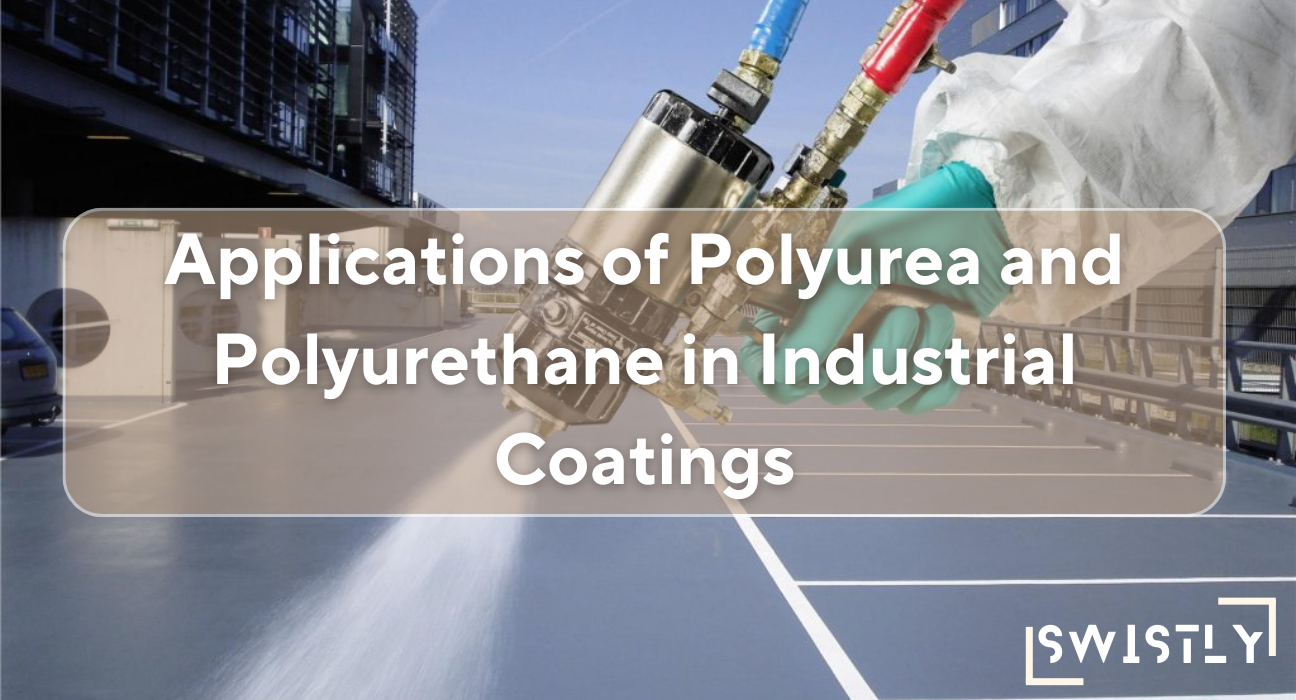Polyurea and polyurethane are two advanced materials widely used in industrial coatings due to their exceptional protective properties. These coatings are known for their durability, flexibility, and ability to withstand extreme conditions. In this article, we will explore the various applications of polyurea and polyurethane in industrial settings, showcasing how they enhance longevity and performance in a range of industries.
What are Polyurea and Polyurethane Coatings?
Polyurea and polyurethane are synthetic polymers known for their robust protective qualities. Polyurea coatings are formed by reacting an isocyanate component with a resin blend, resulting in a highly elastic and durable material. Polyurethane coatings, on the other hand, are created by the reaction of an isocyanate with a polyol, offering excellent adhesion and resistance to wear.
Read About : MyGardenAndPatio com
Industrial Applications of Polyurea Coatings
- Waterproofing and Corrosion Protection One of the primary applications of polyurea is waterproofing, especially in infrastructure like bridges, tunnels, and parking structures. Its seamless nature ensures that no water penetrates through surfaces, preventing damage. Additionally, polyurea provides corrosion protection for pipelines and steel structures in the oil and gas industry, shielding them from harsh chemicals and environmental factors.
- Concrete Coating Polyurea is widely used to coat concrete floors in industrial plants, warehouses, and factories. It offers excellent resistance to abrasion, chemical spills, and heavy loads. The fast-curing nature of polyurea allows minimal downtime, making it ideal for projects where efficiency is crucial.
- Containment Linings In industries dealing with hazardous materials, polyurea coatings are applied to create containment linings for tanks, ponds, and waste areas. These linings prevent leaks, ensuring that no harmful substances seep into the environment. Polyurea’s high chemical resistance and flexibility make it a top choice for such applications.
Industrial Applications of Polyurethane Coatings
- Automotive and Aerospace Coatings Polyurethane is frequently used in the automotive and aerospace industries to protect vehicle exteriors and interiors. Its high gloss finish, combined with resistance to UV radiation, makes it ideal for protective coatings on cars and aircraft. Polyurethane coatings can also withstand high temperatures, enhancing the lifespan of parts and components.
- Flooring Solutions In industries like pharmaceuticals, food processing, and manufacturing, polyurethane coatings are applied to floors to provide a durable and easy-to-clean surface. These coatings offer excellent resistance to chemicals and provide a slip-resistant surface, improving safety in the workplace.
- Wood and Furniture Protection Polyurethane is also used extensively in the wood and furniture industry. It offers a hard, protective finish that shields wood surfaces from moisture, scratches, and general wear and tear. This makes it a popular choice for protecting industrial-grade furniture and fixtures.
Polyurea vs. Polyurethane: Which is Better for Industrial Coatings?
Both polyurea and polyurethane have their unique strengths in industrial applications. Polyurea is known for its fast curing time and superior flexibility, making it ideal for projects requiring rapid application. Polyurethane, however, offers better adhesion and resistance to abrasion, making it suitable for surfaces that endure heavy foot traffic or mechanical wear.
When deciding between the two, factors like project timeline, environmental conditions, and specific material requirements play a crucial role. Both materials provide excellent protection and durability, ensuring that industrial equipment and infrastructure remain operational for extended periods.
Read More : Little Peoples Greater Life Reviews
Advantages of Using Polyurea and Polyurethane in Industrial Coatings
- Durability Both polyurea and polyurethane offer long-lasting protection, withstanding harsh environmental conditions such as UV radiation, chemicals, and mechanical wear.
- Flexibility Polyurea’s flexibility ensures that it remains intact even when applied to surfaces that expand and contract, while polyurethane provides a hard, durable finish that resists chipping.
- Cost-Effectiveness Although initial installation costs may be high, the long-term savings from reduced maintenance and replacement needs make these coatings a cost-effective solution for industrial applications.
- Versatility Polyurea and polyurethane can be used on a wide range of surfaces, including metal, concrete, and wood, making them adaptable for various industries.
Frequently Asked Questions
What is the difference between polyurea and polyurethane coatings?
Polyurea cures faster and is more flexible, while polyurethane provides better adhesion and resistance to wear. The choice depends on the specific application needs.
Why are polyurea coatings used in waterproofing?
Polyurea’s seamless application and high flexibility make it ideal for waterproofing projects, ensuring no water penetration and preventing damage to structures.
Can polyurethane coatings be used on concrete floors?
Yes, polyurethane coatings offer durability and resistance to chemicals, making them suitable for industrial concrete floors that endure heavy traffic.
Conclusion
The applications of polyurea and polyurethane in industrial coatings are vast and continue to expand as industries seek durable, cost-effective, and versatile solutions for their protective coating needs. Whether for waterproofing, corrosion protection, or enhancing safety, both materials offer reliable solutions that extend the lifespan of industrial infrastructure and equipment. Choosing between polyurea and polyurethane depends on the specific requirements of the project, but both provide excellent performance in demanding environments.

